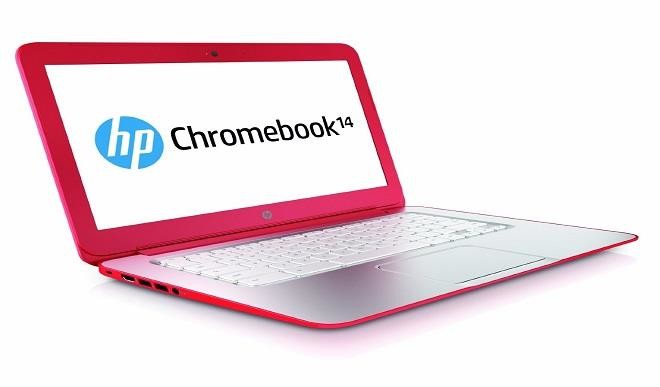Exploding Chromebook computer shipments
In some parts of the world – particularly North America – the shipment of Chromebook computers is exploding at this time, as computer manufacturers are speeding up the building of equipment that take advantage of the Google Chrome operating system (OS), in what could in a sense be seen as (the computer manufacturers) hedging their […]


In some parts of the world – particularly North America – the shipment of Chromebook computers is exploding at this time, as computer manufacturers are speeding up the building of equipment that take advantage of the Google Chrome operating system (OS), in what could in a sense be seen as (the computer manufacturers) hedging their bets. That is, just in case the OS turns to be a fierce competitor to – or even supplant – Windows, which is the de facto OS that drives the majority of PCs and laptops.
I have written a few articles on Chromebooks in this column in Daily Trust, as in 28 April ,2014 and 18 June, 2012. Taken from these articles, “Chrome OS is the engine that drives Chromebooks, which are light, inexpensive laptops specifically built for online computing. That is, these computers were intended solely as a convenient way for you to access the Internet, so that you can work with your data (movies, videos, pictures, etc.) that are stored on the cloud – specifically on Google Drive. Chromebooks are not suitable for intensive use, such as powerful computations or gaming. In the baseline Chromebooks, if you are offline, the computer is virtually useless! However, newer, improved versions are trying to add more offline capabilities so you wouldn’t feel like tossing the books out of the window when you lose Internet connection.”
The failure of Windows 8 probably encouraged consumers to try out Google’s alternative to Windows OS – and perhaps spurred Google’s efforts on Chrome OS, with some differentiation to boot. The differentiation can of course be found in the web focus of Chrome OS. Other competing OSs to Windows include Apple’s MAC OS X, Linux, and – in the works – TmaxOS, the product from South Korea on which I reported a few months ago.
Chromebooks were not built for heavy-duty tasks, but basically as hardware to give you access to your data or software applications located on the web. In the original design of Chromebooks, you couldn’t install and use your favorite programs such as the MS Office Suite or iTunes. So, you are stuck with whatever applications run on Chrome OS. Also, you couldn’t do much offline. Both the active memory and the storage on the hard drive are quite scanty, and Chrome OS needs a more advanced file management system. Although there are virtual private network tools for accessing your office intranet, most companies may not have one that works with Chrome OS. Chrome OS does not allow you to plug in a printer to print a document! The available wireless printing capability in the system works only with select printers.
The Chrome OS of course has some desirable attributes: It integrates very intimately with the cloud. Therefore you can access your documents from any Chromebooks. As I stated in earlier articles, Google has made a fuss about the security of Chrome OS. Also good for security is the fact that the Chrome OS is not nearly as big of a target as Android or Windows – so far fewer hackers are targeting the operating system. That situation may change, though Google is trying to make Chrome OS as secure as it can. Google’s own pitch on Chromebooks: “Chromebooks are automatically kept up to date, so you’ll always have the latest virus protection, along with the latest features like Voice Search. Best of all, your Chromebook won’t slow down over time.”
User feedback on Chrome OS is mixed: some say they love it, many more say it is “crappy.” However, Chromebooks are selling – at least at a rate that is much higher than that of standard PCs or laptops. The volume of sales is comparatively low of course. According to Agam Shah of IDG News Service in his 21 July 2016 article, “In 2015, Chromebook shipments totaled 6.5 million units, so shipments this year could be in the 7.5 million to 8 million range. About 1.65 million Chromebooks shipped in the first quarter of 2016; second quarter numbers weren’t yet available. The devices, though, are still a small fragment of the overall PC market, in which unit shipments are expected to reach 290 million units this year.”
There are reports that in the past year, Chromebooks have been rising to the top of Amazon’s listing of bestselling notebooks, making Chrome OS a real contender that should be acknowledged. Education – students buying the computers and institutions installing them in classrooms – is believed to be the biggest market for Chromebooks so far. Businesses are not yet on board! Moreover, Chromebooks are not yet popular in emerging markets: Asia, Africa, and South America, perhaps because of the requirement for Internet access. As Internet access and the bandwidth situation improve globally, the adoption of Chromebooks will be much more widespread.
